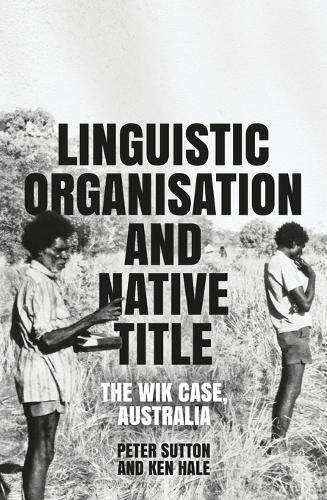Readings Newsletter
Become a Readings Member to make your shopping experience even easier.
Sign in or sign up for free!
You’re not far away from qualifying for FREE standard shipping within Australia
You’ve qualified for FREE standard shipping within Australia
The cart is loading…






Classical Aboriginal societies in Australia have commonly been described in terms of social organisation and local organisation. This book presents rich detail on a third and related domain that has not been given the same kind of attention: linguistic organisation.
Basing their analyses on fieldwork among the Wik peoples of Cape York Peninsula, north Australia, Peter Sutton and Ken Hale show how cosmology, linguistic variation, language prehistory, clan totemic identities, geopolitics, land use and land ownership created a vibrant linguistic organisation in a classical Aboriginal society.
This has been a society long in love with language and languages. Its people have richly imbued the domain of rights and interests in country-the foundations of their native title as recognised in Australian law-with rights and interests in the abundance of languages and dialects given to them at the start of the world.
$9.00 standard shipping within Australia
FREE standard shipping within Australia for orders over $100.00
Express & International shipping calculated at checkout
Stock availability can be subject to change without notice. We recommend calling the shop or contacting our online team to check availability of low stock items. Please see our Shopping Online page for more details.
Classical Aboriginal societies in Australia have commonly been described in terms of social organisation and local organisation. This book presents rich detail on a third and related domain that has not been given the same kind of attention: linguistic organisation.
Basing their analyses on fieldwork among the Wik peoples of Cape York Peninsula, north Australia, Peter Sutton and Ken Hale show how cosmology, linguistic variation, language prehistory, clan totemic identities, geopolitics, land use and land ownership created a vibrant linguistic organisation in a classical Aboriginal society.
This has been a society long in love with language and languages. Its people have richly imbued the domain of rights and interests in country-the foundations of their native title as recognised in Australian law-with rights and interests in the abundance of languages and dialects given to them at the start of the world.